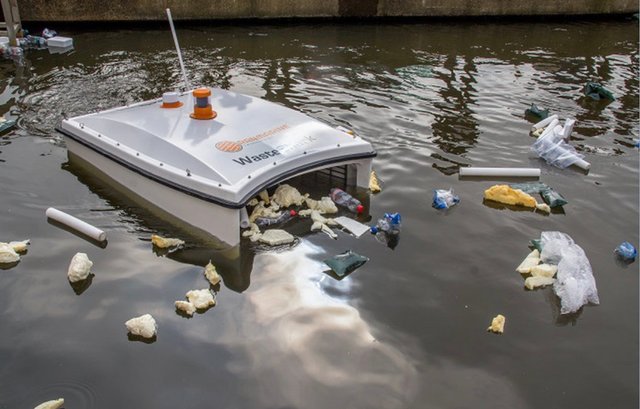Acting as a crucial connection between sea and land, sea ports and harbours play a major role in influencing a country’s economic activity. However, the problem arises when a huge amount of pollutants are emitted into rivers and oceans and in fact, this is already one of the burning issues today.
Sea ports are one of the major sources of pollution, posing grave risks to the environment, health of the locals and the country’s economy. What is worse is the fact that pollution prevention controls at ports and harbours are not being undertaken as much.

Among the few companies that have stepped up in their efforts to curb water pollution around sea ports is the Netherlands-based RanMarine Technology. It leverages autonomous water-robot technology, the model of which is based on whale shark, to curb pollution in water bodies.
Designed to be used either manually or autonomously with online control, the start-up’s innovative technology facilitates real-time monitoring of water. The current products by RanMarine include the WasteShark range that can remove plastics, bio-waste and other debris from maritime facilities.
Apart from its ease in use and potential to remove biomass and plastics (up to a whopping 500 kg plastic wastes per day), a differentiating factor of this technology is the innovation behind it. Unlike other water treatment equipment for ports that have existed till date, Ranmarine's autonomous surface vessels emit zero greenhouse gas that makes it a far more sustainable option.
From security firms, property owners, scientists to ports, municipalities and action groups, the energy start-up has been partnering with and catering to diverse clients in the USA, Singapore, Malaysia, EU and UAE including NGOs like WWF.
Earlier in May 2020, it even raised investment from Luxembourg-based Boundary Holding founded by Rajat Khare, an AI entrepreneur. The funding was expected to expand RanMarine’s offerings and help the company diversify its clientele even more.
While there are various solutions in place to deal with increasing water pollution, all what we need is a reliable, affordable and sustainable option to keep the ports clean. This will, in turn, ensure the health security of the local communities all the while keeping the major economic activities running.